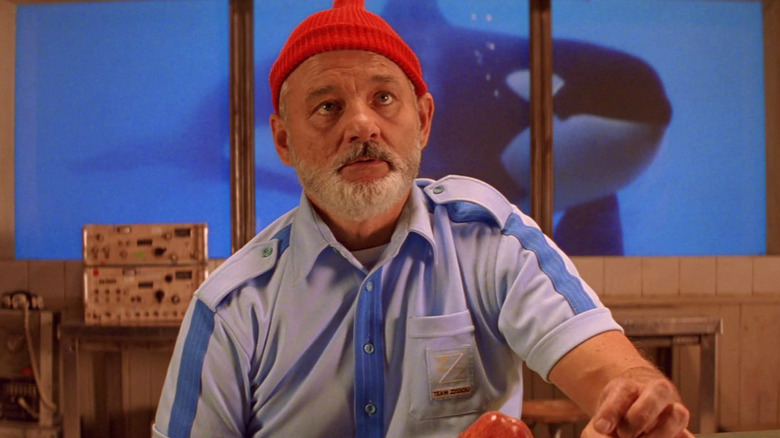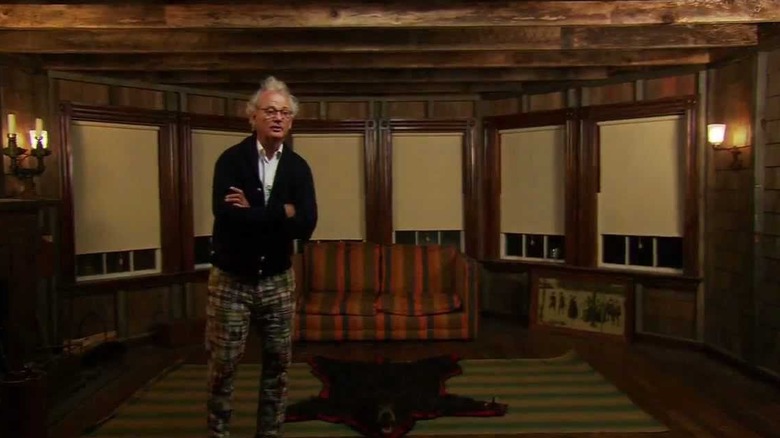Bill Murray’s Phoenician Scheme Cameo Explained

To paraphrase a famous historical father figure, I come to psychoanalyze Wes Anderson’s movies, not Anderson himself. To put it mildly, Anderson’s films are suffused with Daddy Issues. From Royal Tenenbaum to Steve Zissou to the fantastic Mr. Fox himself, Anderson’s filmography is littered with problematic patriarchs. Yet it’d be inaccurate to label these characters as wholly bad people, for each of them has a journey to take which teaches them how to be better fathers, better leaders, and most of all, better men. While the problematic patriarch is an Anderson trope as much as color-coded costumes and diorama-like sets, the filmmaker has found various ways to play around with the archetype rather than always directly portray it. For instance, “The Darjeeling Limited” is notable in that its father figure is (allegedly) never seen, “The Grand Budapest Hotel” features a hotel concierge acting as a substitute father for his bellhop, and “The French Dispatch” substitutes a biological father for a symbolic one, in the form of a magazine editor.
That latter character is played by a longstanding member of Anderson’s acting troupe, Bill Murray, and more than any other Anderson regular, it’s his appearances that tend to carry the most symbolic weight in each of the filmmaker’s movies. To wit, his absence from “Asteroid City” (due to COVID-19-related scheduling) and “The Wonderful Story of Henry Sugar” makes each film feel like they’re missing a key element more than, say, their lack of Owen Wilson. Finally, after a two-film absence, Murray is back in the Anderson ensemble in this month’s “The Phoenician Scheme,” albeit in a cameo role. Yet, as with all of Murray’s appearances in Anderson’s films, this is no small role. For, while “The Phoenician Scheme” features a return to an actual problematic patriarch character in the form of Benicio del Toro’s Zsa-zsa Korda, the film uses Murray in a way that both deepens the theme of this film as well as cleverly sums up all of his roles in Anderson’s cinema.
In Wes Anderson’s universe, Bill Murray is God
In “The Phoenician Scheme,” Korda is shown to have visions of the afterlife due to the numerous assassination attempts on his life, resulting in at least one, if not several, near-death experiences. Whether Korda is merely hallucinating these Bergman-meets-Powell and Pressburger visions of Heaven or is foreseeing (or remembering) his actual experiences there is beside the point, for these scenes serve to illustrate to the character (and the audience) the error of his ways, what he stands to lose, and so on. In one scene, Korda meets God, played by Bill Murray, a character who is the apotheosis (pun intended) of both the afterlife scenes in this movie as well as Murray’s appearances in Anderson’s prior films. To be sure, Anderson isn’t directly attempting any Kevin Smith View Askewniverse shenanigans here — Murray’s God isn’t intended to literally be God in a shared Anderson universe. Yet, thematically, this is the effect the cameo has.
That’s because it has resonance both in the types of characters Murray has played for Anderson, as well as his relationship with Anderson in real life. Throughout Anderson’s films, Murray has occasionally played the literal problematic patriarch (with “The Life Aquatic” and “Moonrise Kingdom” the clearest examples of such), yet even in his other roles of varying size, he’s had a measurable patriarchal impact on the characters and the film itself. Clive Badger in “Fantastic Mr. Fox” dispenses wisdom, Herman Blume provides Max a “cool dad” alternative to his real dad in “Rushmore,” M. Ivan helps look out for Gustave in “The Grand Budapest Hotel,” and so on. Whatever capacity he’s appearing in, Murray’s presence in Anderson’s films tend to have ripples that extend through the entire movie.
Casting Murray as God is both cheeky and sincere for Anderson
Meanwhile, Wes Anderson himself considers Bill Murray a close relation. As he explained in an interview for this piece about Murray’s alleged misconduct on another film in 2023, the actor occupies an almost religious space in his life:
“Bill was such a great supporter of me from the very beginning. I don’t want to speak about somebody else’s experience, but he’s really part of my family. You know, he’s my daughter’s godfather. In fact, he actually baptized her. He’s the one who splashed the water.”
With all of this, who else could be God in Anderson’s universe but Bill Murray? In “Phoenician,” Murray’s God gives Korda some cryptic advice before making him play the “point at which hand is holding something inside it” game, which Korda loses, of course. Murray as God is a perfect encapsulation of Anderson’s art: a blend of intelligence and warmth, an austere exterior giving way to irreverence. Even casting Murray as the Lord is irreverent in and of itself, Anderson’s answer to Murray’s blend of bro-y sarcasm and Sphinx-like mystery, a quality that led to Woody Harrelson’s Tallahassee fanboying over the actor in “Zombieland.” Murray will undoubtedly continue to work with Anderson for the rest of his days, but this role just might be his most meaningful appearance in all of Anderson’s films.
Source link








